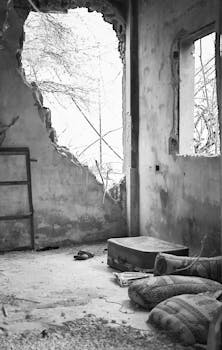PWG Business News: Your Gateway to Market Intelligence
PWG Business News is committed to providing real-time updates and expert-driven insights across various industries, including technology, healthcare, finance, energy, automotive, and consumer goods. We deliver carefully curated news, financial reports, and research-based updates, helping businesses and professionals stay informed and competitive in today’s dynamic business environment.
Our News section covers industry-shaping events such as market expansions, new product launches, mergers and acquisitions, policy shifts, and corporate earnings, offering a strategic advantage to decision-makers seeking actionable intelligence. By bridging industry leaders, stakeholders, and professionals with data-driven content, we empower our audience to navigate the complexities of the global market with confidence.
PWG Business News: Keeping You Ahead in the Business World
At PWG Business News, we deliver timely and credible business news, covering global market trends, economic shifts, and emerging opportunities. With comprehensive coverage spanning healthcare, technology, telecommunications, utilities, materials, chemicals, and financials, our platform provides accurate, well-researched insights that drive success for executives, investors, and industry professionals alike.
Whether you're tracking regulatory updates, innovation trends, or strategic collaborations, PWG Business News ensures you have access to high-quality, data-backed reports that enhance brand visibility, credibility, and engagement. Our mission is to keep you ahead by serving as your trusted source for impactful industry news and market intelligence.
Stay informed with PWG Business News – your gateway to the insights that shape the future of business.
Materials

As geopolitical tensions continue to escalate, with concerns about a potential global conflict on the rise, the European Union is taking proactive steps to ensure its citizens are well-prepared for any crisis. This includes the creation of a comprehensive World War III survival kit designed to provide essential supplies for at least 72 hours. The initiative is part of a broader preparedness strategy aimed at enhancing resilience across the EU states.
In this article, we'll delve into the key components of the EU's survival kit, discuss why this initiative is crucial, and explore how different European nations are preparing their citizens for potential emergencies or conflicts.
The EU's guidelines emphasize the importance of having a well-stocked survival kit that includes:
Additional items include emergency cash, crucial medicines, and a mobile phone with a backup charger. The EU suggests regularly updating the kit to ensure it remains effective and relevant.
Preparedness is not just about survival; it also plays a critical role in reducing panic and anxiety during emergencies. Commissioner Hadja Lahbib highlighted the psychological benefits of knowing what to do in times of danger, citing the importance of "gaming out different scenarios" to prevent panic[2][3]. This proactive approach helps individuals feel more secure and empowered.
While the EU's survival kit serves as a baseline, various European nations are implementing their own unique initiatives to enhance preparedness:
France is set to issue a detailed survival manual to all households, focusing on a broader range of emergencies, from natural disasters to potential nuclear threats. The manual will include instructions for stockpiling six liters of water, canned food, and other essential supplies like batteries and medical kits[2][4].
Sweden has distributed pamphlets titled "If Crisis or War Comes," stressing the importance of mental readiness and stockpiling supplies for at least a week. The country's "total defence" system engages all citizens in national security efforts[4].
Finland, sharing a border with Russia, has a robust survival guide that advises citizens to prepare for incidents and crises by stockpiling food, water, and heating equipment for extreme cold conditions[4].
Germany recommends stockpiling ten days' worth of food, five days of water, and maintaining an emergency cash reserve. The government suggests packing a 'grab bag' for quick evacuations, highlighting the importance of comprehensive preparedness[4].
The EU encourages community-level preparedness through networks and support groups, enhancing overall resilience. Commissioner Lahbib emphasized that these efforts complement national strategies, promoting a cohesive approach to crisis management[3].
In an increasingly uncertain world, the EU's survival kit initiative serves not only as a practical guide for emergencies but also as a symbol of collective preparedness and resilience. While the hope remains that global conflicts will be avoided, being prepared is no longer a choice but a necessity.